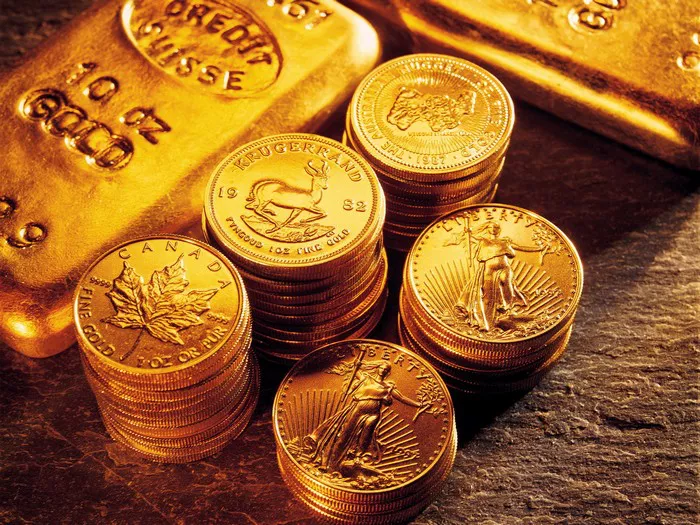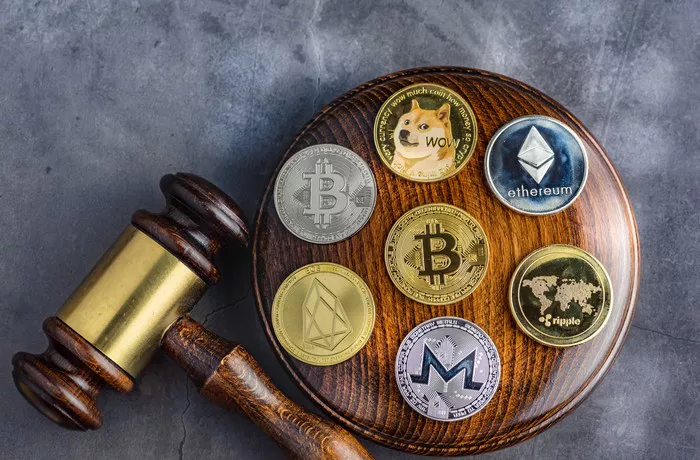Gold and Bitcoin share common ground as safe-haven assets for many investors. Both have a limited supply. This scarcity means that when demand grows, their values tend to rise. In theory, this makes them effective hedges against the weakening of the US dollar and other fiat currencies.
US Dollar Declines as Gold and Bitcoin Rally
So far this year, the US dollar index has dropped by 8%. This fall reflects concerns about trade and fiscal policies under the Trump administration. The index measures the dollar’s strength against a basket of foreign currencies.
Meanwhile, gold and Bitcoin have surged, gaining about 24% and 18%, respectively. This shows that investors are turning to these assets as alternatives to the weakening dollar.
Future Outlook: Gold May Lag, Bitcoin Could Lead
Despite gold’s strong performance in the first five months of the year, JPMorgan analyst Nikolaos Panigirtzoglou predicts a shift. He expects gold to underperform in the latter half of 2025. Investors should consider these insights before making decisions.
How to Invest in Gold and Bitcoin
Before weighing the pros and cons of gold and Bitcoin, it is important to understand how to invest in them.
Gold: Investors can buy physical gold bars from online retailers. However, transporting and storing gold can be expensive and complicated. Selling physical gold bars is often not straightforward.
Bitcoin: Bitcoin can be bought through cryptocurrency exchanges like Coinbase. Yet, trading Bitcoin often involves high fees, and securely storing it can be challenging.
ETFs Simplify Investment in Gold and Bitcoin
Exchange-traded funds (ETFs) offer an easier way to invest without handling physical gold or direct cryptocurrency wallets.
The SPDR Gold Fund (NYSE: GLD) tracks gold’s spot price. It is the largest and most traded gold ETF. The fund charges an expense ratio of 0.4%, meaning investors pay $40 annually for every $10,000 invested.
The iShares Bitcoin Trust (NASDAQ: IBIT) tracks Bitcoin’s spot price. It is the largest spot Bitcoin ETF by assets and trading volume. Its expense ratio is 0.25%, which is moderate compared to similar funds.
Gold and Bitcoin as Hedges Against Market and Dollar Risks
JPMorgan analysts recently shared reasons why Bitcoin might outperform gold in the coming months:
Some companies are adding Bitcoin to their balance sheets. Strategy (formerly MicroStrategy) plans to invest $57 billion in Bitcoin by 2027.
States like Arizona and New Hampshire have passed laws to create strategic Bitcoin reserves. Nearly two dozen other states are considering similar legislation. This could make state governments major Bitcoin buyers in the future.
The analysts wrote, “As more states consider Bitcoin reserves, this could become a lasting positive catalyst.”
Gold Remains a Safer Option for Risk-Averse Investors
Despite Bitcoin’s potential, JPMorgan believes gold remains the safer bet for cautious investors. Gold may provide protection against geopolitical risks and further dollar weakness. The bank cautions that Bitcoin and other cryptocurrencies can increase portfolio volatility, even though they have low correlation with traditional assets.
The Broader Economic Context
Trade tariffs under the Trump administration are expected to raise prices and slow economic growth. The recent tax and spending bill passed by the House may add $3 trillion to the federal debt over the next decade. These factors have made some investors wary of US stocks and bonds.
Consequently, demand for the US dollar has weakened, causing it to depreciate.
Final Thoughts for Investors
This trend may continue or change in the coming months. Investors worried about falling stock markets and a weaker dollar may want to hedge by holding gold or Bitcoin.
For those who dislike volatility, gold is likely the better choice.
However, as more companies and governments adopt Bitcoin as a reserve asset, it could surpass gold in performance, especially over the long term.
Investors should weigh their risk tolerance and the evolving market landscape when deciding between these two popular safe-haven assets.


































